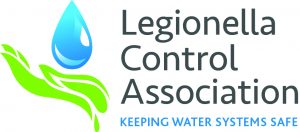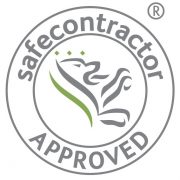Am I responsible for Legionella control for the whole of the building I manage?
You manage a block of flats with apartments owned privately, but with communal water services. Water is stored and distributed centrally from plant rooms under your control. How far do you have to go in carrying out risk assessments and managing risks to water quality, which may include Legionella?
It may seem quite simple at first, as you are clear which areas you may instruct maintenance works for, such as boiler rooms, and those which are private. Surely your responsibility stops at the front door to each flat? The trouble is, Legionella doesn’t think like that. If you look at Legionella bacteria under a microscope, you will see that they have a tail. This means that they will freely swim around in the water system without worrying too much about whose property they are living in.
Anything done in one part of building can have a knock on effect on the other. When a flat is left vacant, the water in the pipework provides the ideal environment for the growth of Legionella. It is undisturbed and at the warm temperatures which lead to rapid growth. By not being around, the resident is creating a risk to everyone else.
Of course there is a limit to how far you can do anything about this, any more than you can stop residents from falling asleep with lit cigarettes. But there is a duty all the same. HSG274, the authority on Legionella control published by HSE states:
“The managing agent should take steps, eg by contractual arrangements, to ensure that tenants are complying with their duties because if the tenant’s water system becomes contaminated with legionella bacteria it may act as a reservoir, seeding it back down into the systems for which the managing agent has responsibility.”
In the absence of a clear contract, the property manager should inform tenants of the risks created by Legionella by leaving flats empty, not just to themselves but to other residents. The information letter should detail how they can control risks by, for example, running all taps weekly, descaling showerheads and, where they are able, to adjust hot water temperatures to minimise the threat from Legionella. This information should be passed to all new flat owners, to pass on to their tenants where relevant. It would be prudent to remind all residents annually.
It could be argued that the flat owners should know about the risks posed by Legionella as the principles involved apply to all dwellings. But were someone to become ill, they might point out that they know nothing of the communal hot and cold water system and way it might affect their flat. They could argue that as the block manager it is you who has expert knowledge about the risks posed by Legionella in communal water systems and that is what they pay their service charge for.
If you would like to download the standard letter that addresses these issues, you can access it here:
We would advise that in addition to this you carry out a water hygiene risk assessment and put in place a written scheme.



